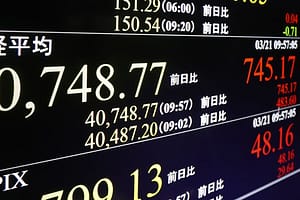The UK Government’s proposed ban on off-shelf promotions of food and drink products high in fat, salt or sugar (HFSS) will have a major impact on FMCG manufacturers and retailers, according to figures released by IRI, a global leader in innovative solutions and services for consumer, retail and media companies.
IRI’s analysis of retail sales data shows that the potential impact of the new restrictions on products high in sugar, salt and fat is just over £3bn in value sales, which typically would come from off-shelf promotions. Categories usually rely on promotional displays to generate anywhere between 8% and 25% volume over the course of a year.
Announced in late July, the new regulations are part of a Government health campaign to help tackle obesity by the way HFSS foods are advertised and promoted. This will include a ban on TV adverts before the 9pm watershed and volume promotions like ‘buy one, get one free’, and the removal of unhealthy items from prominent in-store locations, such as gondola ends, front-of-store and standalone in-aisle promotions.
The Government’s nutrient profile, used to calculate the products that fall into the guidelines, means all biscuits, cakes, chocolate and confectionery – even low-sugar and low-fat varieties and including low sugar ranges – will be banned from promotion.
Using its statistical modelling capabilities to help companies calculate the potential impact of the ban on food and drink products, IRI is working with brand owners and retailers to share analysis and support them through the transition. IRI’s HFSS modelling includes three key elements:
- A snapshot for existing IRI clients to understand the potential category or brand impact of the change in regulations.
- A detailed modelling project to understand the above plus share the overall category impact as a result of cannibalisation within brands.
- A simulation tool to test different scenarios across a client’s entire product portfolio.
It covers brands that are high in sugar, fat and/or salt, allowing manufacturers with products high in all three to see the potential impact on their bottom line.
Publishing its analysis of just the sugar element for a leading confectionery brand, IRI’s figures show that 19% of sales are driven by incremental promotions. With displays removed, the manufacturer would lose up to 2.6m kgs (vs. 2019), which equates to around £12m.
Tom Hall, Director of Analytics and Technology, IRI said, “The Government has made it clear that the HFSS guidelines are an important part of their campaign to encourage people to embrace a healthier lifestyle and to lose weight if they need to. While the FMCG industry is behind such initiatives, they also have to weigh up the costs to their business.
“Talking to both manufacturers and retailers we can see that there is real concern about the impact of the ban. What IRI is offering is detailed analysis of the retail sales data to help them create scenarios for individual product SKUs within individual retailers, which will help them to measure the impact on their business and take steps to mitigate it.”
Food & Drink Federation’s (FDF) Chief Operating Officer, Tim Rycroft added, “IRI’s data clearly outlines the economic impact the proposed restrictions would have on food and drink companies. The nation is in the grip of the deepest recession on record, with much of the hospitality industry on its knees. Now the Government proposes to increase costs, not only for manufacturers and retailers, but also for shoppers and consumers. If price promotions are banned, already hard-pressed shoppers can expect to see their weekly shop become more expensive, to the tune of £600 per year, per family on average**.
“The proposals will mean that healthier choices will fall foul of the Government’s illogical rules on promotions. They will also restrict challenger brands’ ability to get ‘share of shelf’ against established brands without promotions to raise their profile, leading to less choice for shoppers.”






Leave a Comment